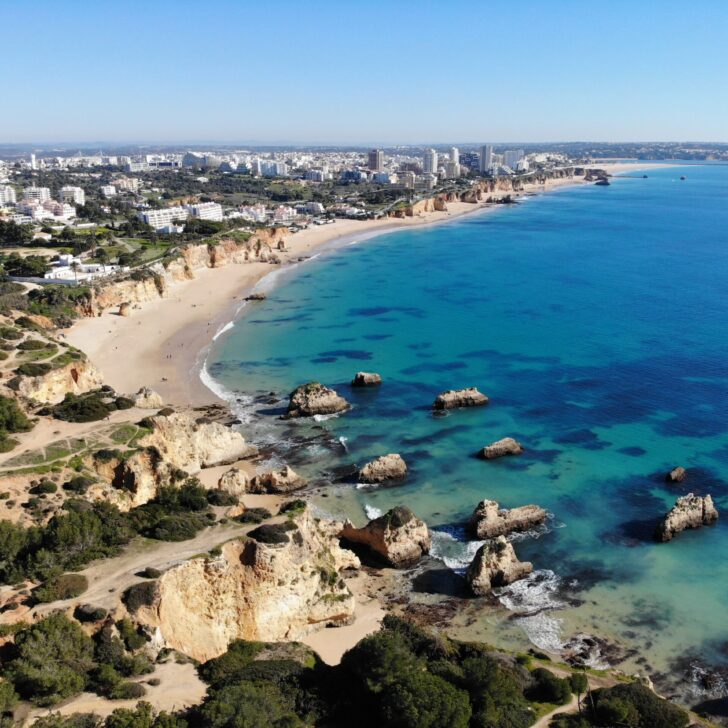What Is Bali Belly? Causes, Prevention, And Home Remedies

Table of Contents
Bali, with its stunning beaches, lush rice paddies, and vibrant culture, attracts millions of tourists annually. However, a less-than-ideal souvenir many visitors bring home is "Bali Belly," a colloquial term for traveler's diarrhea. This unpleasant gastrointestinal ailment can quickly turn a dream vacation into a nightmare. This comprehensive guide explores the causes of Bali Belly, effective prevention strategies, and home remedies for relief, ensuring your Bali trip remains a blissful paradise, free from digestive distress.
Understanding Bali Belly: Causes and Symptoms
What exactly is Bali Belly?
Bali Belly is simply another name for traveler's diarrhea, a common illness affecting tourists worldwide, particularly in developing countries like Indonesia. The prevalence of Bali Belly is relatively high due to factors like the local food and water hygiene standards. It's characterized by loose, watery stools, often accompanied by other symptoms. The severity of Bali Belly can range from mild discomfort lasting a few days to severe dehydration requiring medical attention.
- Mild Cases: Characterized by increased bowel movements, mild cramping, and possibly some nausea. Usually resolves within a few days with rest and hydration.
- Severe Cases: Involve frequent, watery diarrhea, severe stomach cramps, vomiting, high fever, and potentially bloody stools. These cases require immediate medical attention to prevent dehydration and complications.
- Common Symptoms:
- Diarrhea (frequent, watery stools)
- Stomach cramps and abdominal pain
- Nausea and vomiting
- Fever
- Headache
- Muscle aches
Common Causes of Bali Belly
Bali Belly is most often caused by consuming food or water contaminated with harmful bacteria, viruses, or parasites. Several factors contribute to this risk:
- Bacterial Contamination: Bacteria like E. coli, Salmonella, and Shigella are common culprits. These can contaminate food through improper handling, storage, or inadequate cooking.
- Viral Infections: Viruses such as norovirus and rotavirus are highly contagious and can easily spread through contaminated food or water, or even by close contact with infected individuals.
- Parasitic Infections: Parasites like Giardia can contaminate water sources and cause prolonged diarrhea and other digestive issues.
- Foodborne Illness: Undercooked or improperly handled seafood, meat, and poultry are frequent sources of foodborne illness leading to Bali Belly. Street food, while often delicious, presents a higher risk if hygiene standards aren't consistently maintained.
- Contaminated Water: Ice cubes made from tap water, tap water used for brushing teeth, and unpurified water are all potential sources of infection.
- Poor Hygiene: Lack of handwashing after using the toilet or before handling food significantly increases the risk of contracting Bali Belly.
- Changes in Diet and Gut Microbiome: A sudden shift in diet when traveling can disrupt your gut's microbiome, making you more susceptible to infection.
Preventing Bali Belly: Proactive Measures
Preventing Bali Belly involves adopting proactive strategies related to food and water safety, hygiene, and pre-trip preparations.
Food and Water Safety Practices
- Avoid raw or undercooked food: Steer clear of raw seafood (sushi, sashimi), undercooked meat, and unpasteurized dairy products.
- Drink only bottled water or purified water: Avoid tap water entirely, including using it for brushing your teeth unless you're certain it's purified. Even ice cubes made with tap water can be a source of contamination.
- Peel all fruits and vegetables thoroughly: Washing isn't always enough to remove all contaminants. Peeling provides an extra layer of protection.
- Choose well-cooked and hot food: Opt for restaurants with high standards of hygiene and food that's served piping hot.
- Avoid street food vendors with questionable hygiene: While tempting, the risk of contamination from street food can be high.
Maintaining Hygiene
- Wash your hands frequently: Wash your hands thoroughly with soap and water, especially before eating, after using the toilet, and after touching surfaces in public areas.
- Use hand sanitizer: Carry hand sanitizer with you and use it frequently, especially when soap and water aren't readily available.
- Avoid touching your face and mouth: Minimize touching your face and mouth to prevent the transfer of germs.
Pre-Trip Preparations
- Consult your doctor: Discuss recommended vaccinations and necessary medications, like anti-diarrheal drugs, with your doctor before your trip.
- Consider probiotics: Probiotics can help improve gut health and potentially reduce your susceptibility to traveler's diarrhea.
Home Remedies for Bali Belly Relief
If you do experience Bali Belly, there are several home remedies that can help alleviate symptoms.
Hydration is Key
- Oral rehydration solutions (ORS): ORS are specially formulated to replace lost fluids and electrolytes. Follow the instructions on the package carefully.
- Electrolyte-rich drinks: Broth, coconut water, and diluted sports drinks can also help replenish electrolytes.
- Avoid alcohol and caffeine: These substances can worsen dehydration.
Dietary Adjustments
- The BRAT diet: The BRAT diet (bananas, rice, applesauce, toast) consists of bland foods that are easy to digest. It can help soothe your digestive system during a mild case of Bali Belly.
- Bland foods: Stick to easily digestible foods such as plain rice, cooked vegetables, and well-cooked chicken or fish.
- Gradual reintroduction of regular foods: Once your symptoms improve, gradually reintroduce regular foods into your diet.
Over-the-Counter Medications
- Anti-diarrheal medications: Loperamide is an over-the-counter medication that can help slow down diarrhea, but it should only be used under the guidance of a medical professional.
- Pain relievers: Ibuprofen or Paracetamol can help alleviate stomach cramps and fever.
- Seek medical advice: Before taking any medication, it's crucial to consult with a doctor or pharmacist.
Conclusion
Bali Belly, or traveler's diarrhea, is a common concern for visitors to Bali. Understanding its causes – primarily contaminated food and water – is the first step towards prevention. By practicing diligent food and water safety, maintaining good hygiene, and taking pre-trip precautions, you can significantly reduce your risk. If you experience Bali Belly, prioritize hydration and consider gentle home remedies. However, for severe cases, such as persistent vomiting, high fever, or bloody stools, seeking medical attention is essential. Don't let Bali Belly ruin your dream vacation! Learn more about preventing and treating traveler's diarrhea to ensure a healthy and enjoyable trip to Bali. Plan your trip wisely and stay informed about Bali Belly prevention.

Featured Posts
-
 Hugh Jackman And Deborra Lee Furness Divorce The Latest Updates
May 28, 2025
Hugh Jackman And Deborra Lee Furness Divorce The Latest Updates
May 28, 2025 -
 Acheter Le Samsung Galaxy S25 Ultra 256 Go Guide D Achat Complet
May 28, 2025
Acheter Le Samsung Galaxy S25 Ultra 256 Go Guide D Achat Complet
May 28, 2025 -
 A Roman Champions Unwavering Drive
May 28, 2025
A Roman Champions Unwavering Drive
May 28, 2025 -
 Pacers Vs Bulls Tyrese Haliburtons Final Injury Report
May 28, 2025
Pacers Vs Bulls Tyrese Haliburtons Final Injury Report
May 28, 2025 -
 Nba Playoffs Tyrese Haliburton Props And Best Bets For Game 3 Knicks Vs Pacers
May 28, 2025
Nba Playoffs Tyrese Haliburton Props And Best Bets For Game 3 Knicks Vs Pacers
May 28, 2025
